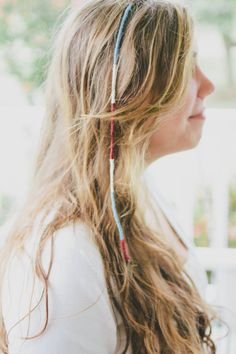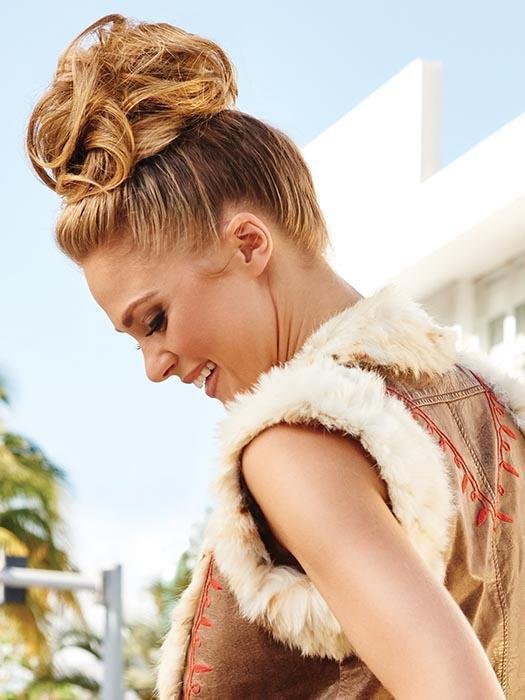Hair wrap is not just a fashion statement; instead, it’s a versatile tool that helps protect, style, and maintain healthy hair with minimal effort. Whether you’re wrapping wet hair after a shower or adding flair to your outfit, a hair wraps can make a big impact. In this guide, we’ll explore everything you need to know: benefits, types, step‑by‑step tutorials, DIY options, and much more. Best of all, this content is easy to understand and fun to read—perfect even for an 11‑year‑old!
What Is a Hair Wrap?
Hair wrap refers to using a piece of cloth, turbans, towels, or wraps around your head or hair to achieve goals such as drying, styling, or protecting hair. It’s simple enough for anyone to do, yet it offers amazing advantages. In just a few minutes, you can wrap your hair to enhance health, curb frizz, or look super stylish.
Why Use Hair Wrap?
First, hair wrap helps protect your hair from breakage, especially after washing. Additionally, it reduces friction if you sleep with it on. Moreover, depending on the wrap type, it can dry your hair without heat, offering a gentle, healthier option. Finally, hair wraps also add a fashionable touch to any outfit.
Types of Hair Wraps and Their Benefits
1. Microfiber Hair Wrap
Hair wrap made of microfiber is soft, lightweight, and dries hair quickly without roughness. This type really cuts down drying time and helps protect your hair from damage.
2. Cotton Turban Hair Wrap
Cotton wraps are breathable and gentle on hair. Using a cotton hair wrap means your hair stays comfy and absorbs moisture naturally. Likewise, it prevents sweat build‑up and is perfect for everyday use.
3. Satin or Silk Hair Wrap
If you want to avoid frizz and retain moisture, satin or silk hair wraps is key. Not only do they protect natural oils, but also they reduce friction. Plus, they elevate your style with a smooth, luxurious finish.
4. DIY Hair Wrap
You can easily make a hair wraps at home using an old T‑shirt or soft scarf. Just cut, tie, and voila! You have a personalized wrap that’s eco‑friendly and budget‑friendly.
How to Choose the Right Hair Wrap

To pick the best hair wraps, consider:
- Hair type – thick, thin, curly, or straight?
- Material – microfiber, cotton, silk?
- Purpose – drying, protecting, styling?
- Comfort – light or snug fit?
When you answer these, you’ll choose the most suitable hair wraps with ease.
How to Use Hair Wrap: Step by Step
Step 1: Wash and Rinse
After washing your hair, gently squeeze out the excess water. But make sure not to rub!
Step 2: Apply Leave‑In Conditioner
Next, for extra care, add a weightless conditioner.
Step 3: Wrap Your Hair
- Gather hair at the top of your head.
- Place the wrap open at the nape of your neck.
- Twist the wrap from the ends upward.
- Pull the twisted wrap to the forehead and secure it in place.
Step 4: Leave It On
Let the hair wraps sit for 10 to 20 minutes—or longer, depending on your goal. If it’s for drying, aim for 15 minutes; if you just want protection, leave overnight.
Step 5: Unwrap and Style
Remove the wraps gently and style your hair’s as usual.
Hair Wrap Uses: More Than Just Drying
- Heat-Free Drying – Dry hair fast without blow‑dryers.
- Sleep Protection – Wear it overnight to reduce bed‑time breakage.
- At-Home Spa Day – Use a hair wrasp with conditioner for a mini-treatment.
- Quick Fashion Fix – Wrap for instant style while running errands or lounging.
- Workout Style – Keep hair off your face during exercise.
Caring for Your Hair Wrap
To keep your hair wraps fresh and clean:
- Machine‑wash gentle with mild detergent
- Avoid bleach
- Air‑dry or tumble‑dry low
- Wash regularly to prevent any buildup or odor
By doing this, your wrap stays soft, clean, and ready to use anytime.
DIY Hair Wrap Tutorial
Want to make your own hair wraps? Follow these easy steps:
- Take an old soft T‑shirt.
- Cut out a rectangle (approx. 25 x 70 cm).
- Fold lengthwise and sew edges.
- You now have a stretchable, cozy tie‑on wrap.
You can also add cool prints or personalize it with fabric paint.
Expert Tips for Hair Wrap Success
- Tight but comfy – wrap snugly but not painfully.
- Cool down first – let water cool slightly after washing so wrap wicks moisture well.
- Alternate wraps – have a set for drying and one for sleeping.
- Embrace patterns – fun prints make hair wraps feel like fashion statements!
Why Kids and Teens Should Use Hair Wrap’s
If you’re 11 or a teenager:
- It’s fun and practical!
- No more wet-hair school days.
- Your hair stays neat without heat damage.
- Express yourself with colorful wraps!
Real-Life Example: Emma’s Hair Wrap Routine
Emma, age 13, uses a microfiber hair wraps every time she showers. She says, “It’s like a cozy towel for my hair—and my hair stays smooth all day.” She leaves it for 20 minutes, then styles her curls softly. It saves time and protects her natural curls.
Comparing Hair Wraps
| Material | Best For | Pros | Cons |
|---|---|---|---|
| Microfiber | Fast drying | Quick absorbency, lightweight | Can feel warm |
| Cotton | Breathing comfort, eco-friendly | Gentle and natural feel | Slower drying |
| Silk/Satin | Frizz control, style | Prevents breakage and retains moisture | Needs delicate care |
| DIY T‑shirt | Budget-friendly, custom design | Recyclable, personalized | Less absorbent, simple look |
Additional Ways to Use a Hair Wrap
- Deep Conditioning Session: With conditioner or mask, wrap and relax.
- Travel Convenience: Compact, easy for trips.
- Workout Hair Holder: Keeps hair tidy while exercising.
- Face Mask Prep: Wraps keep damp hair out of your face during skincare.
Troubleshooting Hair Wrap Problems
- Too Loose? Try a knot or clip.
- Hair Still Wet? Extend wrap time or use microfiber.
- Wrap Slips? Secure with a pin or elastic band.
- Uncomfortable at Night? Try a lighter silk wrap for sleep.
Summary: Hair Wrap in a Nutshell
To wrap up (pun intended!):
- Hair wraps is a clever way to dry, style, and protect your hairs.
- Choose the correct material based on your needs.
- Easy to use, kid-friendly, and full of benefits.
- Customize with DIY projects and care for them properly.
- Helps save time, promotes hair health, and looks cute!
In conclusion, a hair wraps is an essential tool in your beauty toolkit. It’s quick, stylish, and smart—perfect for anyone who wants happy, healthy hair with minimal hassle.
Final Thoughts
Now that you know all about hair wraps—how it works, types, usage, DIY tips, and more—you’re ready to grab one (or make one!) and add it to your daily routine. You’ll notice softer, smoother hair, fewer frizz-filled mornings, and maybe even a fashionable flair in your selfies. After all, wrapping your hair in style is easier than ever!
Read more: Blacked House: A Bold Home Design Trend You Need to Know


